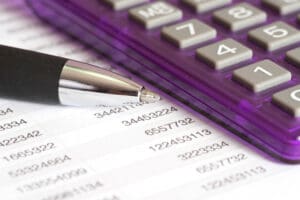The economic crisis caused by the coronavirus pandemic poses a triple challenge for tax policy in the United States. Lawmakers are tasked with crafting a policy response that will accelerate the economic recovery, reduce the mounting deficit, and protect the most vulnerable.
To assist lawmakers in navigating the challenge, and to help the American public understand the tax changes being proposed, the Tax Foundation’s Center for Federal Tax Policy modeled how 70 potential changes to the tax code would affect the U.S. economy, distribution of the tax burden, and federal revenue.
In tax policy there is an ever-present trade-off among how much revenue a tax will raise, who bears the burden of a tax, and what impact a tax will have on economic growth. Armed with the information in our new book, Options for Reforming America’s Tax Code 2.0, policymakers can debate the relative merits and trade-offs of each option to improve the tax code in a post-pandemic world.

House “One Big Beautiful Bill” Riddled with Temporary Tax Policy
As lawmakers continue to debate the “One Big Beautiful Bill,” they should abandon temporary and complex policy in favor of simplicity and stability.
4 min read
Exorbitant Sports Betting Taxes Could Kill the Legal Market
The unique complexities of tax design for sports betting excise taxes make optimal tax design particularly challenging. Any reforms to the federal sports betting tax should ensure that both bettors and operators find legal markets more attractive than illicit markets.
6 min read
House GOP’s Approach to the IRA Clean Energy Tax Credits: Five Things to Know
Tax simplification has two aspects. The first is a code without a mess of targeted provisions for various social policy goals. The second is a code with provisions that are simple and easy to comply with. The bill succeeds at the first, but fails at the second.
7 min read
Washington’s Digital Ad Sales Tax Legislation Is a Legal and Economic Minefield
In Washington, Gov. Ferguson (D) will soon have to act on legislation enacting a far more sweeping tax on Washington-based businesses than lawmakers imagined.
7 min read
Disallowing Business SALT Raises Significant Revenue for Reconciliation but Slows Economic Growth
Pairing permanent TCJA individual tax cuts with new limits on business SALT deductions would shrink the economy, reduce American incomes, and increase the federal budget deficit, undermining the policy goals of TCJA permanence.
3 min read
Even with Exemptions, Tariffs Will Hurt American Energy Production
The Trump administration advocates an “energy dominance” agenda to boost US energy production and lower costs. Its tariff agenda runs directly counter to it.
5 min read
Balls and Strikes on American Manufacturing: What Are the Facts?
Catastrophic rhetoric about US manufacturing is not justified. The tariffs are extremely counterproductive. Still, all is not well in the US manufacturing sector. What should we do?
7 min read
Improving Tax Treatment of R&D Would Boost Productivity and Growth
As Congress debates expensing and other policies impacting business investment, lawmakers should consider the importance of business investment in research and development (R&D) as a driver for economic growth. Recent studies suggest that the economic benefits of R&D spending are even greater than previously understood.
7 min read
States Lose When Credit Unions Acquire Banks
A tax preference originally designed to level the playing field now has the opposite effect, creating preferences for one class of financial institutions even though the distinctions between credit unions and banks are increasingly blurred.
6 min read
Fiscal Forum: Future of the EU Tax Mix with Dr. Christoph Spengel
Tax Foundation Europe’s Sean Bray had the opportunity to interview Professor of International Taxation at the University of Mannheim Business School, Christoph Spengel, about the future of the EU tax mix.
15 min read